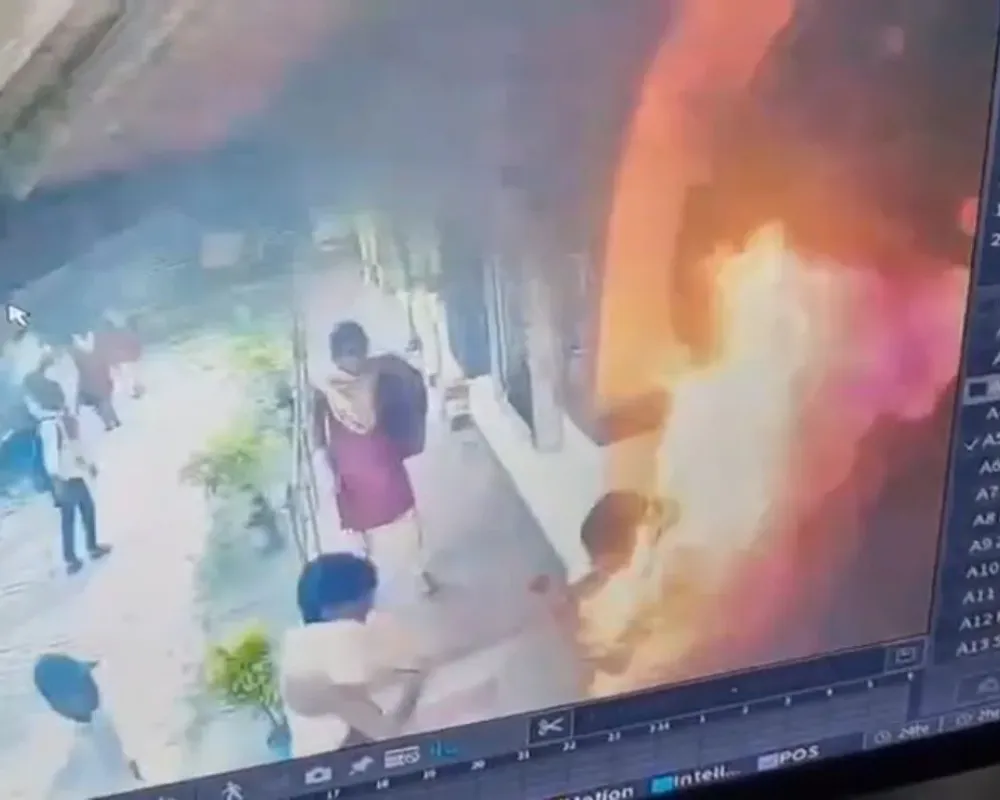A 20-year-old Odisha student, Pari Jena, succumbed to burns after allegedly self-immolating over ignored sexual harassment complaints against professor Samir Kumar Sahu and inaction by Principal Dilip Ghose.
 Ritika Das
Ritika Das

The state of Odisha has been plunged into grief and outrage following the tragic death of Pari Jena, a 20-year-old B.Ed student from Fakir Mohan (Autonomous) College in Balasore. Pari succumbed to 95% burn injuries at AIIMS Bhubaneswar on Monday, July 14, 2025, just a day after she had set herself ablaze on the college campus. Her desperate act was a protest against alleged sexual harassment by a professor, Samir Kumar Sahu, and the college administration's purported inaction on her repeated complaints.
The harrowing incident occurred on Saturday, July 12, 2025. Pari Jena had reportedly been part of a peaceful protest ongoing since July 1, demanding action against Samir Kumar Sahu, the Head of the Department of Education, whom she accused of sexual harassment, mental torture, and threatening to manipulate her academic marks if she did not comply with his demands.
According to witnesses and CCTV footage, Pari suddenly doused herself in petrol and set herself on fire near the main gate of the college. A male student who bravely tried to intervene also sustained burn injuries. Both were initially taken to Balasore district headquarters hospital before Pari, with critical 95% burns, was shifted to AIIMS Bhubaneswar for specialized care. Despite tireless efforts by medical teams at AIIMS Bhubaneswar, including mechanical ventilation and continuous resuscitation, her condition deteriorated, and she was declared clinically dead late on Monday night.
Pari Jena's family and fellow students assert that she had submitted multiple written complaints to the college administration, including Principal Dilip Ghose, alleging harassment by Samir Kumar Sahu. Her mother, in an emotional statement, alleged that the principal, HOD, and other teachers mentally pressurized Pari to withdraw her complaint, even threatening to fail her in exams.
Students and activists have widely criticized the college administration for its alleged failure to take prompt and decisive action on Pari's complaints. An internal complaints committee (ICC) was reportedly formed, but students claimed it was biased and lacked transparency, giving a "clean chit" to the professor. This perceived inaction is believed to have driven Pari to take the extreme step.
Following the public outcry and intensified protests, the authorities have initiated action:
Pari Jena's tragic death is not merely an isolated incident but a chilling symptom of deeper systemic issues within educational institutions and society's response to sexual harassment.
The loss of Pari Jena is a stark reminder of the devastating consequences when cries for help are ignored. It serves as a powerful, albeit tragic, call for introspection and urgent reforms within India's educational system to ensure that campuses are truly safe spaces for all students, and that allegations of harassment are met with immediate, impartial, and effective action. The investigation must be thorough, transparent, and ensure that all those responsible, at every level, are held accountable.






Sign up for the Daily newsletter to get your biggest stories, handpicked for you each day.
 Trending Now! in last 24hrs
Trending Now! in last 24hrs